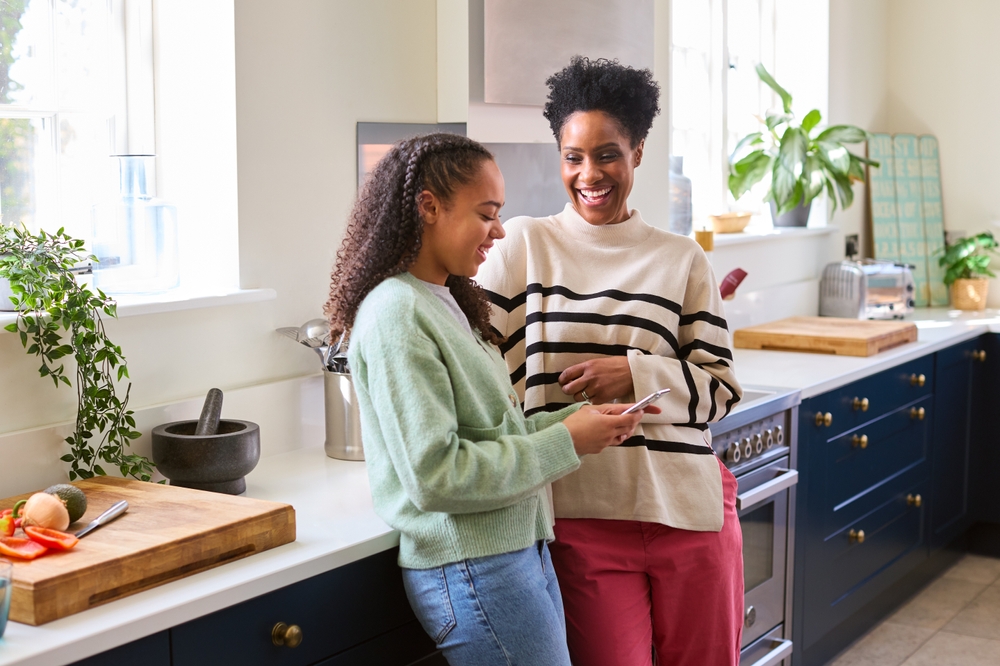Engaging in casual conversations can be tricky for some people. Especially if you tend to walk away from every interaction, second-guessing every word you say. Cut yourself a break; you might be much better at small talk than you give yourself credit for. Whether making new friends at a party, chatting with colleagues at work, or shooting the breeze with the barista, here are some subtle signs that you can nail a casual conversation even if it doesn’t always feel that way.
1. People Seem Relaxed Around You

If people feel comfortable and at ease when talking to you, that’s a good sign. It means you’re giving off a warm, welcoming vibe and inviting them to open up. Being good at casual conversations means engaging with people in a way that feels inviting and like a mutual transaction. Even if you don’t know them very well.
2. You Can Talk to Anyone

If you find it easy to strike up a conversation with your neighbor, the mailman, or a stranger on the street, that means you are friendly and can talk to anyone. You don’t always need to have a deep connection to initiate conversation or keep a chat going. Being able to connect with people, even if it’s a warm hello, is a clear sign you’re a natural conversationalist.
3. You Ask Thoughtful Questions

Having a conversation is a two-way street. If you’re the type who knows how to (and, more importantly, enjoys) asking questions that go beyond the surface, it shows you’re naturally curious. You are also a pretty good listener. This makes you come across as interested and genuine, which puts people at ease and keeps the conversation flowing.
4. You’re Good at Reading the Room

If you have a knack for picking up on social cues and knowing when to change the subject or when to dig deeper, you’re empathetic and a natural-born conversationalist. The ability to read the room makes you attuned to people, and they will gravitate toward you. Being able to adapt and adjust your conversation style based on the vibe makes others more comfortable to open up.
5. People Open Up to You Easily

If people share more with you than you or they expected, you are obviously good at making others feel safe and heard in a conversation. When someone feels comfortable opening up, it’s a clear sign you’re a good listener, a skilled conversationalist, and someone they feel they can trust.
6. You’re a Great Listener

One of the most important parts of a conversation is the ability to listen. If you naturally allow others to talk without interrupting, you genuinely care about and are listening to what they are saying. No matter how casual, a good conversation isn’t about voicing your opinions but allowing others to speak their mind freely without feeling invisible or judged.
7. You Can Keep a Conversation Going

Not everyone has a talent for keeping the conversation rolling. Even if you have nothing in common with someone, if you enjoy the conversation, and it flows naturally, it’s a testament to your conversational skills. If you know how to find common ground with someone, you are in tune and empathetic and genuinely care about them.
8. You Know How to Use Humor

Humor can be a tricky tool in conversation. If you know how to lighten the mood and land a joke at the appropriate time, you’ve got great skills. A well-timed joke or light-hearted comment can break the ice and put everyone at ease. Just be sure not to use humor to deflect from the issue or make someone feel unheard.
9. People Seek You Out for Chats

If people tend to come for you for a quick chat or always want to catch up, this shows they value your opinions and enjoy talking to you. Whether they’re seeking your opinion or advice or just want to hang out in your company, take this as a sign people love having conversations with you.
10. You’re Not Afraid of Silence

If awkward silences don’t make you uncomfortable, you understand not every moment needs to be filled with chatter. Allowing a conversation to breathe and giving the other person space to process and reflect is a sign that you’re confident in your conversational abilities and don’t have to fill in every gap.
11. You Adapt to Different Conversational Styles

If you know instinctively how to adapt a conversation or your conversation style depending on who you’re talking to, this is a great skill. Regardless of whether it’s a quick, light-hearted exchange or a more serious discussion, being able to switch gears easily means you can handle any social situation. This flexibility also makes you a versatile conversationalist.
12. You Don’t Rely on Canned Responses

If what you say in a conversation comes naturally, and you don’t feel the need to stick to a rehearsed script, you are a good and comfortable communicator. An ability to think on your feet and respond in a way that’s genuine and relevant to the moment and conversation should be admired. This spontaneity keeps conversations fresh and interesting, and you will be someone people want to talk to.
13. You’re Curious About Others

Curiosity is the key to good conversation. If you naturally show interest in others and mean it, you’re already one step ahead in the conversation game. Taking a genuine interest in someone and listening attentively makes people feel valued and appreciated. This naturally leads to better, more open and meaningful conversations.
14. You Keep Things Positive

No one wants to chat with Debbie Downer. If, when things become tense or negative, you are able to steer conversations in a positive direction, this can put everyone at ease. An ability to focus on the bright side or find a silver lining in a situation can make the conversation less heavy and more enjoyable. It also means you’re more skilled at casual conversation than you realize and again people will want you around.
15. You Leave People Feeling Good

The best sign you’re great at casual conversation is how people feel after talking to you. If they walk away feeling better, lighter, or more connected and inspired, you’ve done your job well. Leaving a positive impact on others through conversation is not only the hallmark of a great conversationalist, it will make you feel better after interactions as well.








